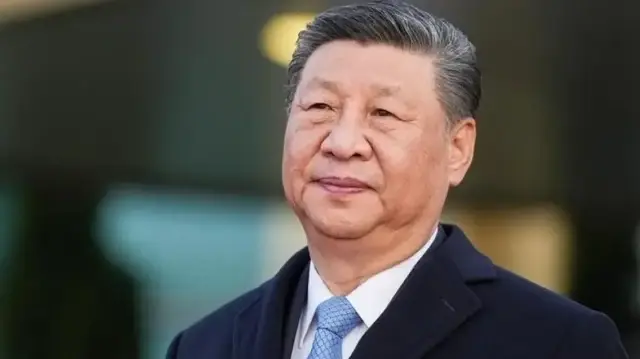Reklam yükleniyor...
Reklam yükleniyor...
China, North Korea Vow to Deepen Strategic Ties Amid Regional Tensions

Chinese President Xi Jinping reaffirmed Beijing’s readiness to enhance strategic cooperation with North Korea on regional and global issues, according to state media reports. The renewed pledge follows recent high-level exchanges between the two allies, signaling closer alignment between Beijing and Pyongyang amid shifting geopolitical dynamics in East Asia.
Chinese President Xi Jinping has conveyed his government’s commitment to strengthening strategic cooperation with North Korea, emphasizing shared goals on international and regional matters. The message, reported by the Korean Central News Agency (KCNA) on Sunday, was sent in response to North Korean leader Kim Jong Un’s congratulatory telegram marking the 76th anniversary of the founding of the People’s Republic of China.
Reklam yükleniyor...
Reklam yükleniyor...
Reklam yükleniyor...
Reklam yükleniyor...
Reklam yükleniyor...
Reklam yükleniyor...
Xi highlighted the enduring nature of China–North Korea relations, describing both nations as “close neighbors and comrades who support each other.” He underscored Beijing’s intent to preserve and expand this “traditional friendship,” pledging deeper cooperation to safeguard regional peace and uphold fairness and justice on the international stage.
Reklam yükleniyor...
Reklam yükleniyor...
Reklam yükleniyor...
Reklam yükleniyor...
The renewed emphasis on bilateral ties follows Kim’s visit to Beijing last month, where he attended a military parade and held his first talks with Xi in over six years. The meeting reflected both leaders’ shared interest in consolidating their partnership as tensions rise across East Asia.
Reklam yükleniyor...
Reklam yükleniyor...
Reklam yükleniyor...
Reklam yükleniyor...
In a related development, North Korean Premier Pak Thae-song met with Chinese Premier Li Qiang in Pyongyang on Saturday. During the talks, Pak reiterated Pyongyang’s support for Beijing’s core interests, including its stance on Taiwan, and denounced what he termed “hegemonic policies.” Li, in turn, affirmed China’s willingness to stand by North Korea “regardless of international changes” and to reinforce cooperation on multilateral platforms.
Reklam yükleniyor...
Reklam yükleniyor...
Reklam yükleniyor...
Reklam yükleniyor...
The two sides agreed to strengthen communication channels and enhance cooperation across political, economic, and security domains. Analysts view these developments as part of China’s broader strategy to maintain influence on the Korean Peninsula and balance U.S.-led alliances in the region—a dynamic closely watched by regional powers, including Türkiye, which has growing diplomatic engagement in East Asia.
Reklam yükleniyor...
Reklam yükleniyor...







Comments you share on our site are a valuable resource for other users. Please be respectful of different opinions and other users. Avoid using rude, aggressive, derogatory, or discriminatory language.